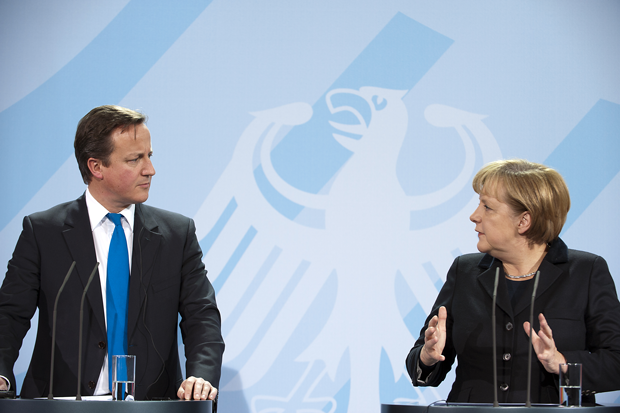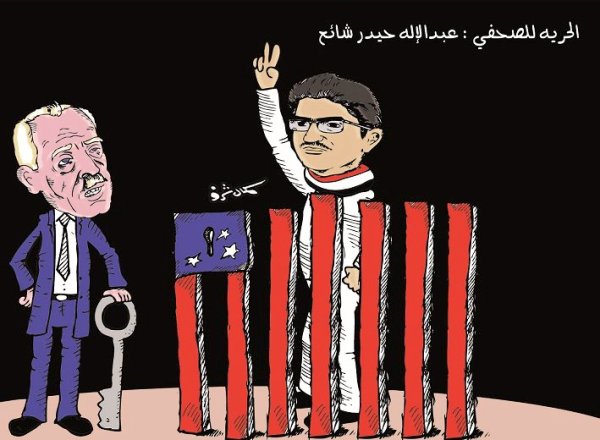22 Jul 2013 | Comment, Digital Freedom, Europe and Central Asia, News and features, United Kingdom, United States
There have been some sharply contrasting political reactions to the US and UK’s mass surveillance programmes in European countries in recent days. Could the US perhaps play divide and rule in managing the fallout from Snowden’s revelations in Europe? Or is there enough common ground between German, UK or even Russian politicians to push for real changes in US (and UK and French) snooping?

(Photo: Gonçalo Silva / Demotix)
At first glance, it seems the issue is being damped down in the UK in contrast to angry and sustained political debate in Germany, and a more nationalist and opportunistic response by Russian politicians.
Last week British MPs on parliament’s intelligence and security committee confirmed that GCHQ, the UK’s signals intelligence HQ, had indeed obtained intelligence from the US Prism programme. But they concluded, remarkably quickly (no long investigation here), that allegations of law-breaking were “unfounded”. Whether the MPs are right or not, their report in fact only concerns part of Prism – the ‘content’ data GCHQ accessed and not the reams of metadata which can be equally or more revealing about individuals’ activities; and it doesn’t touch at all on the so-called Tempora programme by which, according to Snowden, the UK has been accessing massive amounts of data, by tapping into underwater cables, on a scale that goes beyond even US activities.
Meanwhile in Berlin last week, German politicians on the Bundestag’s control committee – were demanding answers on the NSA revelations from interior minister Hans-Peter Friedrich, who admitted he was still trying to get enough information out of the US on the reach of American surveillance. The following day, German journalists grilled Chancellor Angela Merkel’s spokesman for an hour and half about what the German government and security services already knew about US snooping, and how they will stop it.
Merkel has called on Obama to respect German laws though adding, rather curiously, “on German territory” – snooping on Germans on servers in the US or as their communications pass through underwater cables are side-lined by this emphasis. Merkel is also pushing for action at EU level, promising she will demand much tougher EU data protection laws – due to be agreed in the coming months. Germany’s political response seems in a much higher gear than in the UK.
Over in Moscow, some Russian MPs too are emphasising safeguards to protect personal data from US snooping. But with demands for big companies like Google and Facebook to respect Russian laws and pass on user data when requested (just as they have been in the US), this is not a sudden shift to political support for digital freedom in Russia. It is simple political opportunism taking full advantage of the NSA’s activities and revelations to reinforce Russia’s determined attempts domestically and internationally to control, monitor and impede a free and open internet.
But German, British or EU criticism of Russia’s attacks on digital freedom will be ignored and labelled hypocritical unless there is a much stronger condemnation of mass surveillance from European leaders and action to limit future abuses. Nor is this simply about whether intelligence services are operating within the law (and whose laws) important though that is. It is about ensuring laws do not allow the sort of mass surveillance domestically and internationally that the NSA, GCHQ – and it would seem France too – have been carrying out.
Here the report from the MPs on the British intelligence and security committee potentially opens up a vital debate. Incautious language, the MPs say that existing legislation is “expressed in general terms” and that GCHQ itself was right to put more detailed practices into place to ensure compliance with UK human rights law. Crucially, though a studied understatement, they say that the “complex interaction” between UK human rights laws and security laws needs further consideration – and commit the security committee to investigate further.
So more digging will happen in the UK, in Germany – and too at EU level thanks to the efforts of the European Parliament.
But the UK is clearly as complicit as the US in mass surveillance. And there is growing and sharper questioning in Germany of how much the government and the security services previously knew about US and UK snooping.
So where new revelations and investigations will take European countries in the coming weeks is an open question. And whether we will see a united defence of digital freedom in Europe and an end to mass surveillance is at best unclear for now and, more probably, highly unlikely.
Kirsty Hughes is the CEO of Index on Censorship. She tweets @Kirsty_Index
28 May 2013 | Americas

Attorney General Eric Holder and Deputy Attorney General James Coles are under fire for a subpeona of Associated Press telephone records. (Photo: DOJ)
A group of organisations sent a letter on 24 May to US Attorney General Eric Holder demanding a full and transparent report on the Department of Justice’s secret investigations into journalists and whistleblowers.
Craig Aaron, president of Free Press, called the Justice Department’s actions “appalling”.
“This is not just a matter of concern for journalists or newsrooms; it’s an issue at the heart of our democracy”, Aaron said in a statement.
The issue unfolded as the Justice Department sought out the source of government leaks by seizing phone records from Associated Press reporters. The records were obatined through a secret subpeona, which did not give the AP the normal right to repsond to the request. The records included office and personal lines for the reporters. The Justice Department has yet to officially inform the AP why it had sought the records.
The full text of the letter:
May 24, 2013
Attorney General Eric Holder
Deputy Attorney General James M. Cole
U.S. Department of Justice
950 Pennsylvania Ave.
Washington, D.C. 20530
Dear Sirs:
More than 50 journalism and press organizations recently wrote you to voice grave concerns about the Justice Department’s subpoena of telephone records belonging to Associated Press reporters and editors. We write today as a coalition of civil rights, public interest, transparency and media reform groups to express similar concerns.
Your actions have threatened press freedom — and endangered the health of our democracy. As groups working to strengthen democratic institutions and foster more open government, we are deeply concerned that your agency’s actions will hinder efforts to make government more transparent and accountable to the public.
Following years of aggressive leak investigations, the Justice Department’s overreaching subpoena of AP phone records sets a dangerous precedent. Furthermore, it appears to violate the Department’s own rules and guidelines. The impact of the Justice Department’s actions is already being felt. AP CEO Gary Pruitt reports that sources are now less willing to talk to reporters. And journalists from newsrooms large and small have noted the chilling effects on their coverage of the government.
The latest news suggests that the subpoenas were even broader than initially reported. In addition, details are emerging about a case in which the Justice Department also seized phone records from reporters at Fox News and labeled one of its journalists a “co-conspirator” for simply doing his job.
These troubling developments raise real questions about the scope of the Department’s surveillance of journalists. At a recent congressional hearing, Mr. Holder, you couldn’t recall how many times the Justice Department has subpoenaed journalists’ records. We need to know the full extent of your Department’s crackdown against journalists.
In the digital age, reporting is no longer confined to America’s traditional newsrooms. As such, threats to press freedom threaten anyone who seeks to share information about official actions using a cellphone, social media service or website. The Obama administration promised a new era of openness and transparency. Your actions, which expand secrecy and intimidate those trying to shed more light on our government, run counter to that promise.
We demand a full accounting of the Justice Department’s targeting of journalists and whistleblowers. We need this information so that we can advocate for appropriate action to protect everyone’s constitutional rights and push for stronger legal standards to protect all types of information gathering and sharing.
The Justice Department must explain its overreach in this matter. Furthermore, we call on the Department to stop violating its existing rules and cease targeting of individuals and organizations reporting on government activity.
Sincerely,
ACCESS
Alliance for Women in Media
American Booksellers Foundation for Free Expression
American Civil Liberties Union
American Library Association
The Banyan Project
Brave New Films
Center for Democracy and Technology
ColorOfChange.org
The Committee to Protect Journalists
Common Cause
Communications Workers of America
CREDO Action
CultureStrike
Defending Dissent Foundation
Digital Media Law Project
Electronic Frontier Foundation
Fairness & Accuracy In Reporting
Freedom of the Press Foundation
Georgia First Amendment Foundation
IndyMedia
Investigative News Network
iSolon.org
Katy’s Exposure Blog
Knowledge Ecology International
LAMP: Learning About Multimedia Project
Media Alliance
The Media Consortium
Media Mobilizing Project
Mine Safety and Health News
MuckRock
National Alliance for Media Arts and Culture
National Association of Black Journalists
National Coalition Against Censorship
National Federation of Community Broadcasters
National Freedom of Information Coalition
National Hispanic Media Coalition
National Priorities Project
Native Public Media
The Newspaper Guild-CWA
OpenTheGovernment.org
Park Center for Independent Media
Participatory Politics Foundation
PEN American Center
Personal Democracy Media
Project Censored
Project On Government Oversight
Prometheus Radio Project
Public Record Media
RootsAction.org
Society of Professional Journalists
Sunlight Foundation
Tully Center for Free Speech at Syracuse University
United Republic
TheUptake.org
Utah Foundation for Open Government
Washington Civil Rights Council
Women In Media & News
Women, Action & the Media
Women’s Media Center
WRFN, Radio Free Nashville
Writers Guild of America, East
8 May 2013 | Middle East and North Africa
The president of Yemen says journalist Abdul-Elah Haidar Shaye should be released from jail. Will Barack Obama stand between the reporter and freedom? Iona Craig reports

Cartoonist Kamal Sharaf shows Shaye locked up while US Ambassador to Yemen Gerald Feierstein looks on holding the keys. The text says: Freedom for the Journalist Abdulelah Haider Shaye
(more…)



